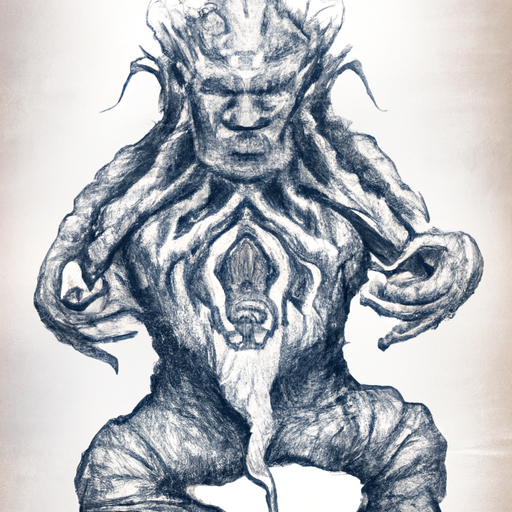Arik Einstein is an iconic figure in Israeli music, whose songs have resonated with generations. This blog post delves into the most popular songs from his extensive discography, exploring their lyrical themes, musical styles, and cultural impact.
“Ani Ve’ata” – A Testament of Love?
“Ani Ve’ata” is often regarded as one of Arik Einstein’s most iconic songs, capturing the essence of love and connection in a heartfelt manner. The lyrics, penned by the talented Yoni Rechter, are a poetic expression of the deep bond between two individuals, resonating with listeners on a profound level. The haunting melody, combined with Einstein’s soulful vocals, creates a sense of intimacy and nostalgia that has stood the test of time. This timeless classic continues to be a favorite among fans, evoking emotions of love, longing, and unity with each listen.
The song’s enduring popularity can be attributed to its universal themes of love, relationships, and human connection, which transcend cultural and linguistic barriers. “Ani Ve’ata” has become a soundtrack for countless couples, symbolizing the enduring power of love and the beauty of shared experiences. The emotional depth of the lyrics, coupled with Einstein’s emotive delivery, strikes a chord with listeners of all ages, making it a timeless anthem of love and devotion.
How did “Uf Gozal” Influence Israeli Folk Music?
“Uf Gozal” is a beloved Israeli folk song that has left a lasting impact on the country’s musical landscape, influencing both artists and audiences alike. This iconic song, composed by the legendary Arik Einstein and Shalom Hanoch, has become a cultural touchstone, resonating with generations of Israelis and serving as a symbol of national pride and unity.
- 1. Revolutionizing Traditional Folk Music:
“Uf Gozal” revolutionized Israeli folk music by blending traditional elements with a contemporary sound, creating a fresh and innovative approach to the genre. The song’s catchy melody, heartfelt lyrics, and spirited rhythm captured the essence of Israeli culture and identity, appealing to a wide audience and revitalizing the folk music scene. - 2. Celebrating Nature and Freedom:
The lyrics of “Uf Gozal” celebrate themes of nature, freedom, and the beauty of the Israeli landscape, reflecting a deep connection to the land and a sense of national pride. The song’s imagery of a young bird learning to fly resonates with listeners, symbolizing the spirit of independence and resilience that is characteristic of Israeli society.
“Sa Leat” – A Reflection of Einstein’s Evolution in Music
Early Career Influence:
During the early stages of his career, Arik Einstein established himself as a prominent figure in the Israeli music scene, known for his soulful vocals and poignant lyrics. “Sa Leat,” released in 1966, marked a significant turning point in Einstein’s musical evolution, showcasing his versatility and experimentation with different musical styles. The song’s introspective lyrics and haunting melody demonstrated Einstein’s willingness to push the boundaries of traditional Israeli music and explore new artistic horizons.
Musical Innovation and Collaboration:
“Sa Leat” exemplified Einstein’s commitment to musical innovation and his willingness to collaborate with other talented artists. The song, composed by the legendary Israeli musician Shalom Hanoch, featured a unique blend of folk, rock, and jazz elements, showcasing Einstein’s ability to seamlessly integrate diverse musical influences into his work. Through his collaboration with Hanoch, Einstein was able to expand his creative vision and produce a song that resonated with audiences on a deeper level.
“Ooh Ah” – Simply a Fun Song or a Social Commentary?
Arik Einstein’s song “Ooh Ah” has sparked debates among fans and critics alike regarding its deeper meaning and significance. On the surface, “Ooh Ah” is a catchy and upbeat tune that exudes a sense of joy and playfulness, with its infectious chorus and lively rhythm. However, some listeners argue that beneath its cheerful facade, “Ooh Ah” carries subtle social commentary and deeper layers of meaning that reflect Einstein’s astute observations of human behavior and society.
The repetitive nature of the lyrics in “Ooh Ah” has been interpreted by some as a commentary on the monotony and routine of everyday life, highlighting the cyclical nature of human experiences. The juxtaposition of the carefree melody with the underlying sense of repetition and routine creates a sense of irony that invites listeners to ponder the complexities of modern existence. Einstein’s clever wordplay and nuanced delivery in “Ooh Ah” further contribute to the song’s ambiguous nature, leaving room for interpretation and analysis.
Arik Einstein‘s music has left an everlasting impression on Israeli culture. His songs, filled with deep meaning and soulful melodies, continue to resonate with people of all ages. Whether you’re a long-time fan or a newcomer to his music, Arik Einstein’s most popular songs are timeless classics that deserve a spot in every music lover’s playlist.



